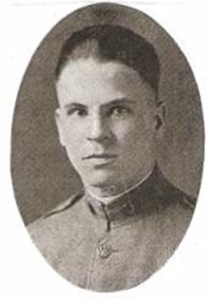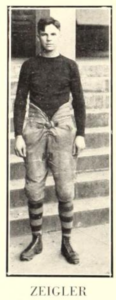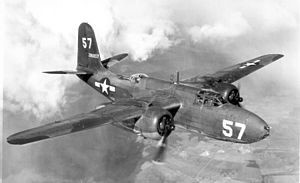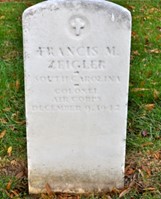Scroll of Honor – Francis Marion Zeigler
Namesake
Written by: Kelly Durham
Like his namesake, the legendary Swamp Fox of Revolutionary War fame, Francis Marion Zeigler of Denmark seemed destined for renown as a warrior. As a cadet, Zeigler was quickly recognized as a leader, being elected vice president of both his freshman and sophomore classes. He also served as vice president of the YMCA, and as secretary and treasurer of the Clemson chapter of the American Society of Mechanical Engineers. In Clemson’s cadet regiment, Zeigler advanced through the ranks each year, starting out as a private, promoted to corporal as a sophomore, sergeant major as a junior, and cadet captain as a senior.
Zeigler was also a fine athlete. He was a member of the football team where he played fullback “as very few men have played it,” Taps reported. “Zeigler is an earnest worker at all times; he plunges the line, tackles hard, and is always a fighter.” In addition to football, Zeigler was a member of the Tiger track team which he served as captain. In 1921, he set the Clemson record for 880 yards at 2 minutes, 3 and 3/5 seconds. He contributed to the school’s mile relay record as well, 3 minutes, 34 and 3/5 seconds. His athletic prowess earned him membership in the Block “C” Club which he served as president.
 Zeigler’s classmates observed his “individuality, sincerity, and fineness of purpose” and elected him as president of the Class of 1923, an august group that included a future governor and US senator as well as a world famous journalist and author. Taps wrote that Zeigler had “been recognized as a leader among us, and has tackled every problem set before him in his quiet honest way.”
Zeigler’s classmates observed his “individuality, sincerity, and fineness of purpose” and elected him as president of the Class of 1923, an august group that included a future governor and US senator as well as a world famous journalist and author. Taps wrote that Zeigler had “been recognized as a leader among us, and has tackled every problem set before him in his quiet honest way.”
In 1927, Zeigler joined the Army and displayed the same level of commitment to military service that he had shown at Clemson. Zeigler was attracted to the field of aviation and earned his pilot’s wings. Over a career that included assignments in the Philippines and China, Zeigler accumulated 2,900 flying hours, making him one of the Army’s more experienced flyers. While stationed at the Army Air Depot in Fairfield, Ohio, Zeigler was tasked with planning and organizing the new Warner Robbins Army Air Depot in Georgia. In the fall of 1942, with the United States embroiled in a global war, the forty-year-old colonel was assigned as executive officer at the new air base.
On Wednesday, December 2, 1942, Zeigler was the pilot of an Army A-20 Havoc medium bomber on a transition training flight. His copilot was Arvil Copeland, the assistant general manager of the depot’s aircraft repair shop. At approximately 1550 hours, Zeigler took off to the west. Upon reaching an altitude of twenty to thirty feet, the aircraft leveled off and then nosed down into a flat dive, striking a road about 150 feet from the end of the runway. The impact sheared off the landing gear and the faring of the right engine’s nacelle. The A-20 bounced into the air and appeared to continue straight ahead while climbing to about 200 feet. Zeigler attempted to make a wide turn to the left to return to the field, but witnesses reported that the airplane was flying in an “extremely tail low position and gradually losing altitude.” Faced with a deteriorating situation, Zeigler elected to land in a small field about two miles southwest of the runway. The plane hit the ground on its belly, the force of the impact flipping it onto its back and causing “total damage.” Both Zeigler and Copeland were seriously injured. Copeland died four days later on Sunday, December 6. Zeigler passed away the following Wednesday, December 9.
manager of the depot’s aircraft repair shop. At approximately 1550 hours, Zeigler took off to the west. Upon reaching an altitude of twenty to thirty feet, the aircraft leveled off and then nosed down into a flat dive, striking a road about 150 feet from the end of the runway. The impact sheared off the landing gear and the faring of the right engine’s nacelle. The A-20 bounced into the air and appeared to continue straight ahead while climbing to about 200 feet. Zeigler attempted to make a wide turn to the left to return to the field, but witnesses reported that the airplane was flying in an “extremely tail low position and gradually losing altitude.” Faced with a deteriorating situation, Zeigler elected to land in a small field about two miles southwest of the runway. The plane hit the ground on its belly, the force of the impact flipping it onto its back and causing “total damage.” Both Zeigler and Copeland were seriously injured. Copeland died four days later on Sunday, December 6. Zeigler passed away the following Wednesday, December 9.
 Colonel Francis Marion Zeigler was survived by his mother, his wife, the former Mildred Van Ausdel, a son, a step-daughter, four brothers, and four sisters. He was buried at Arlington National Cemetery.
Colonel Francis Marion Zeigler was survived by his mother, his wife, the former Mildred Van Ausdel, a son, a step-daughter, four brothers, and four sisters. He was buried at Arlington National Cemetery.
For more information on Francis Marion Zeigler see:
https://soh.alumni.clemson.edu/scroll/francis-marion-zeigler/
For additional information about Clemson University’s Scroll of Honor visit:
https://soh.alumni.clemson.edu/
